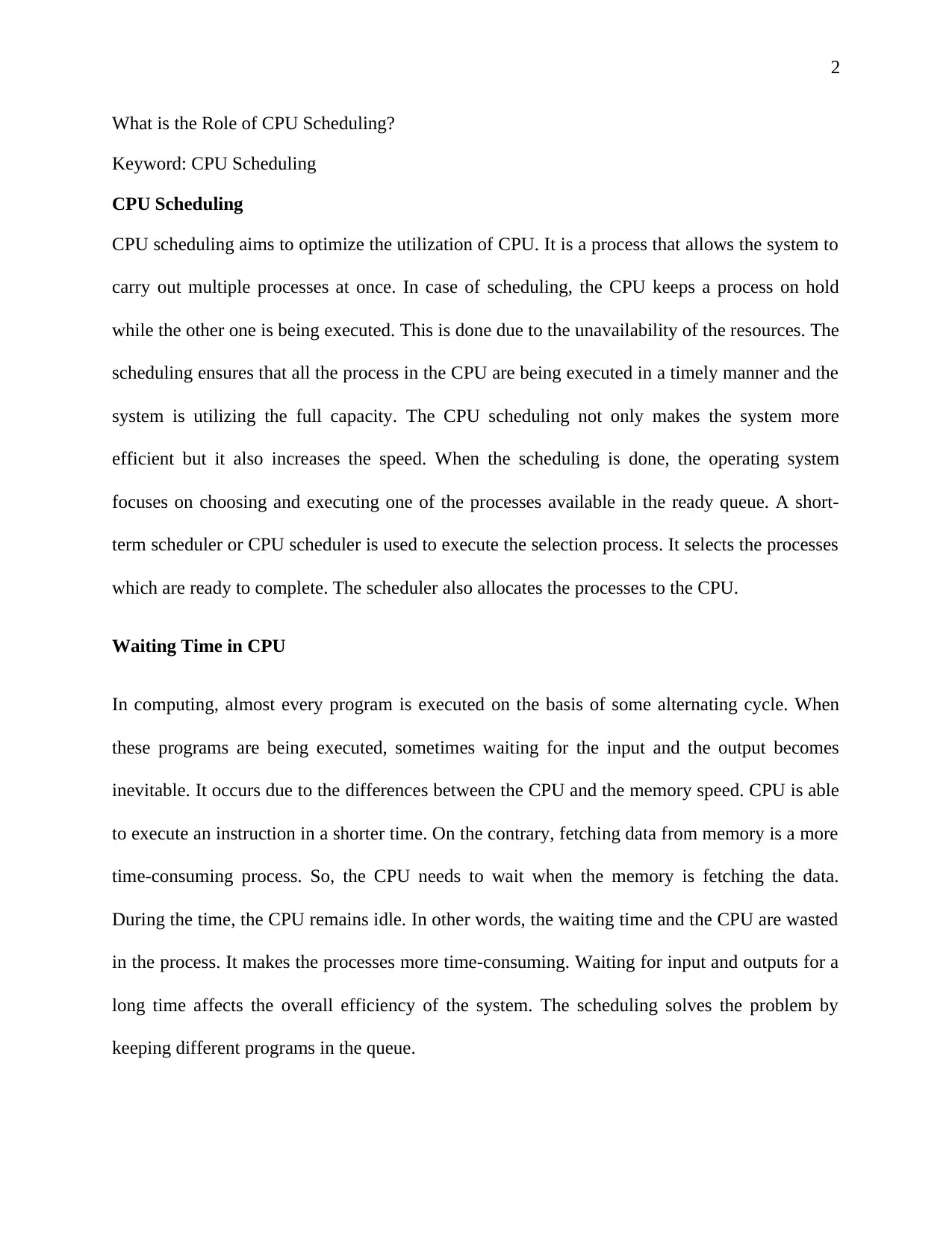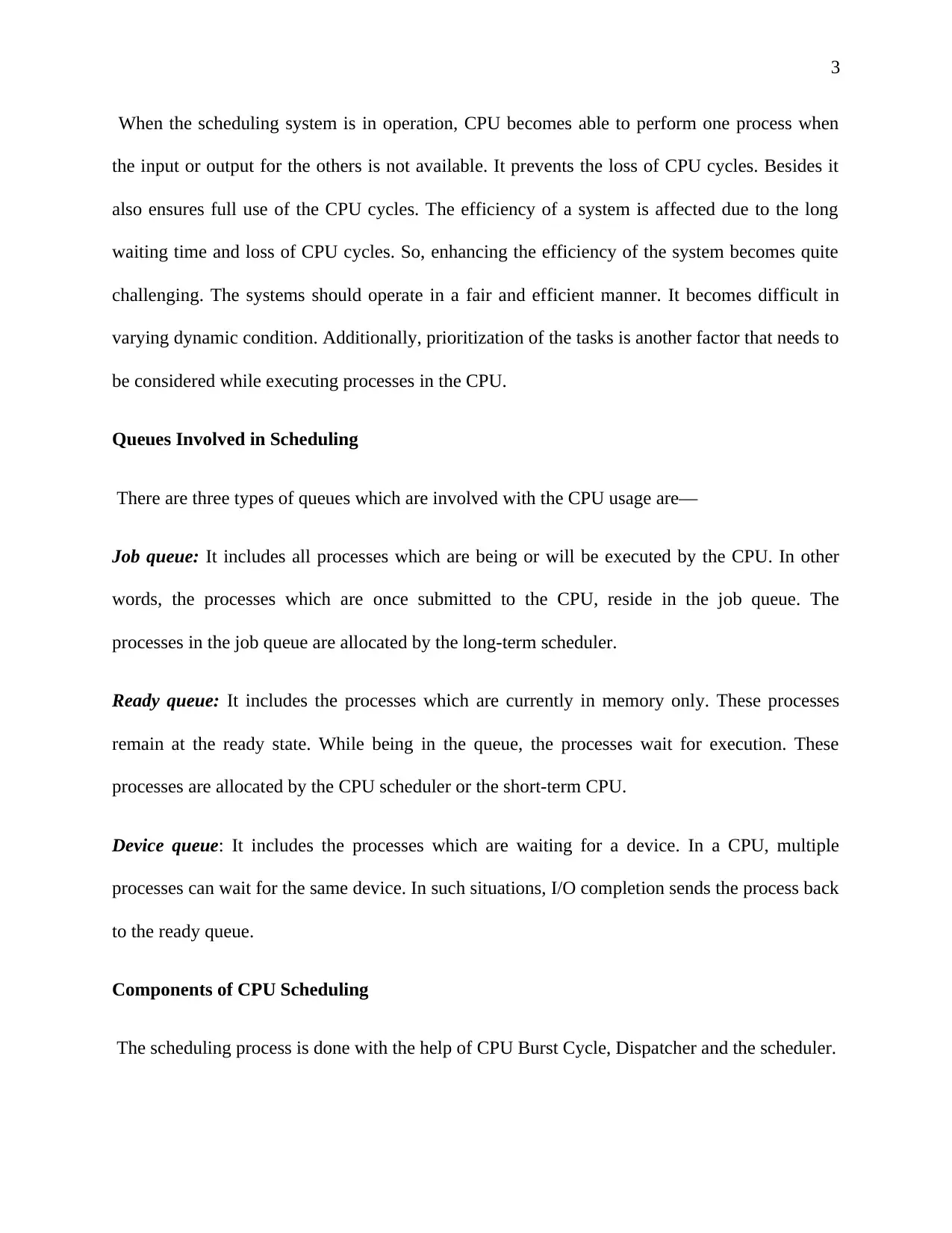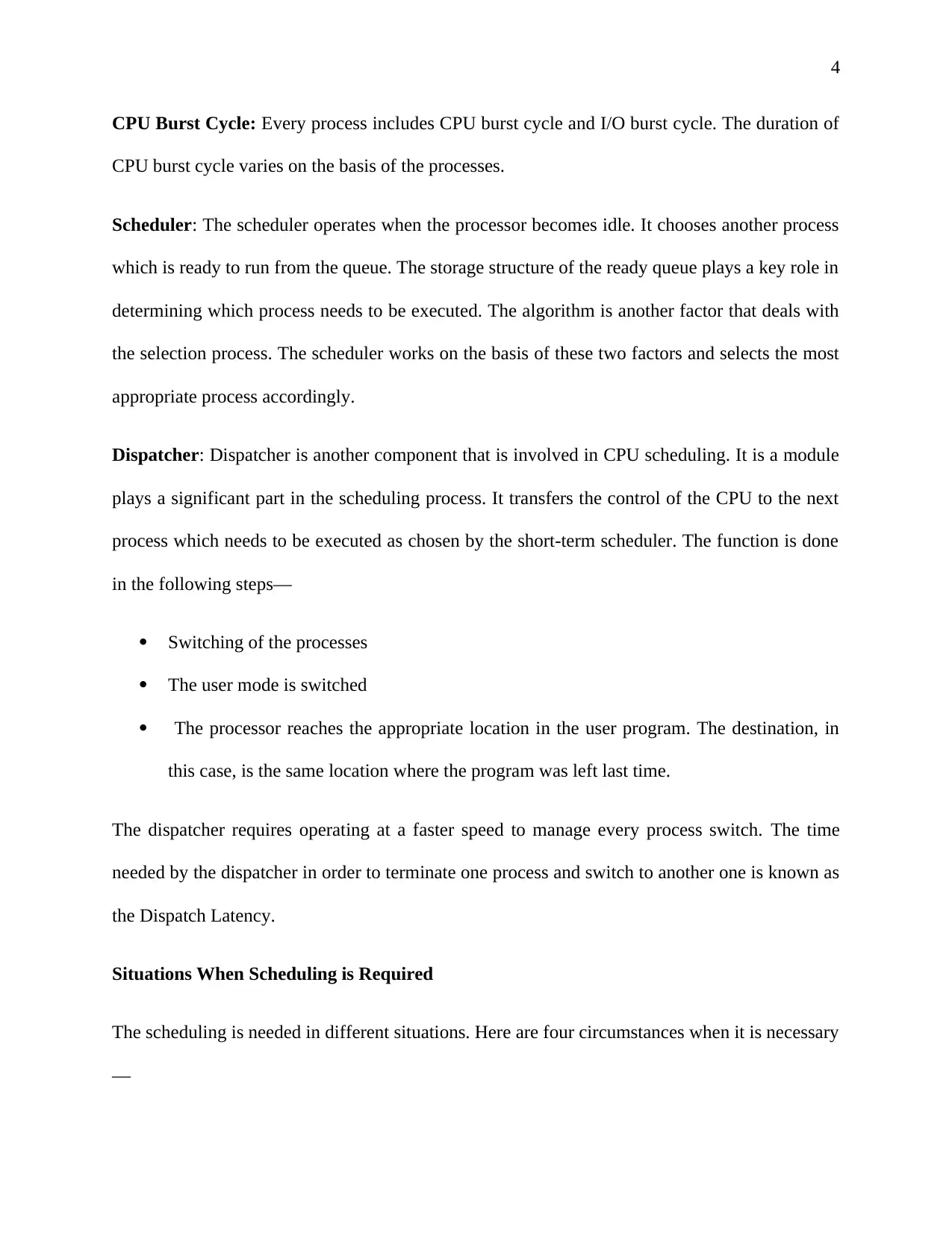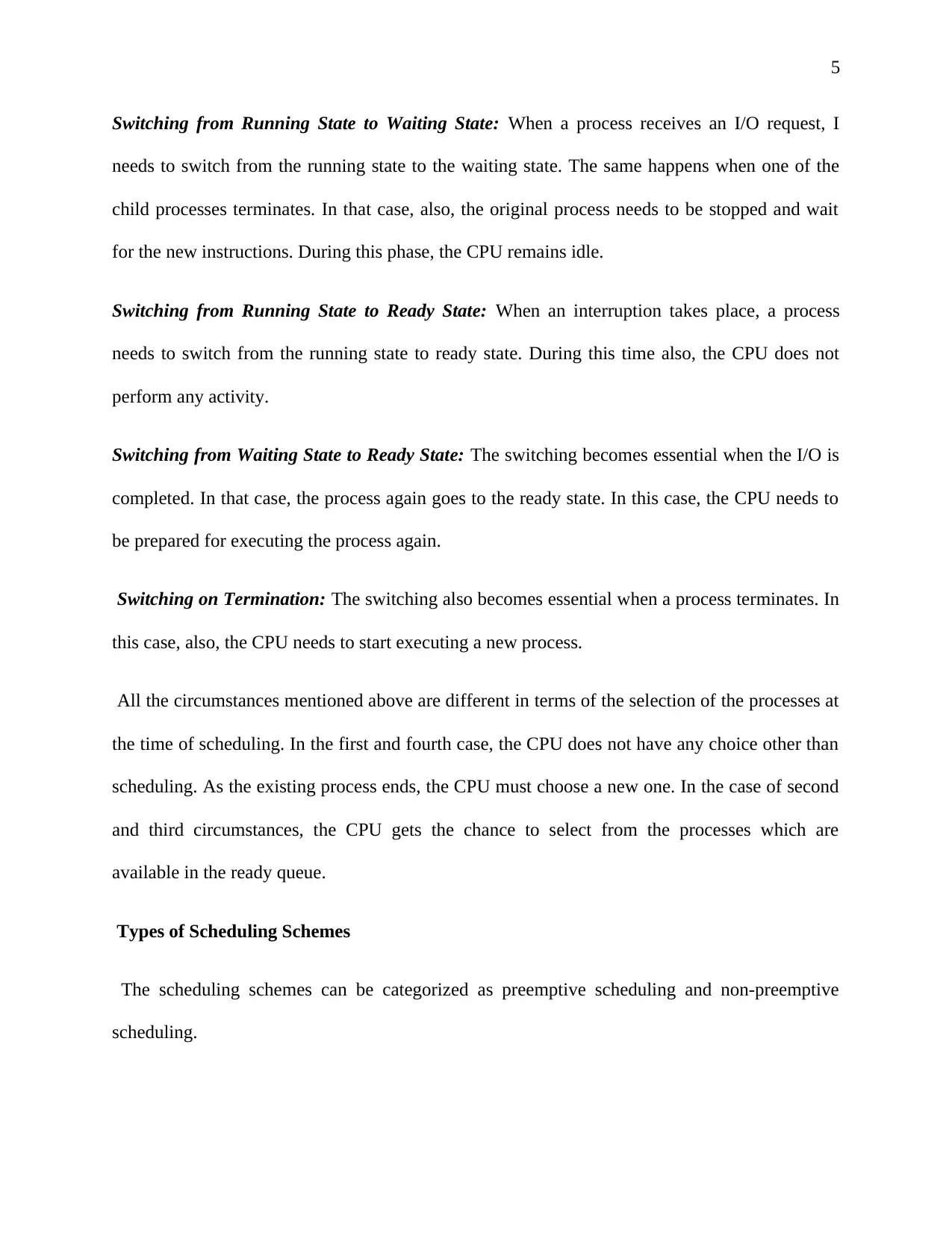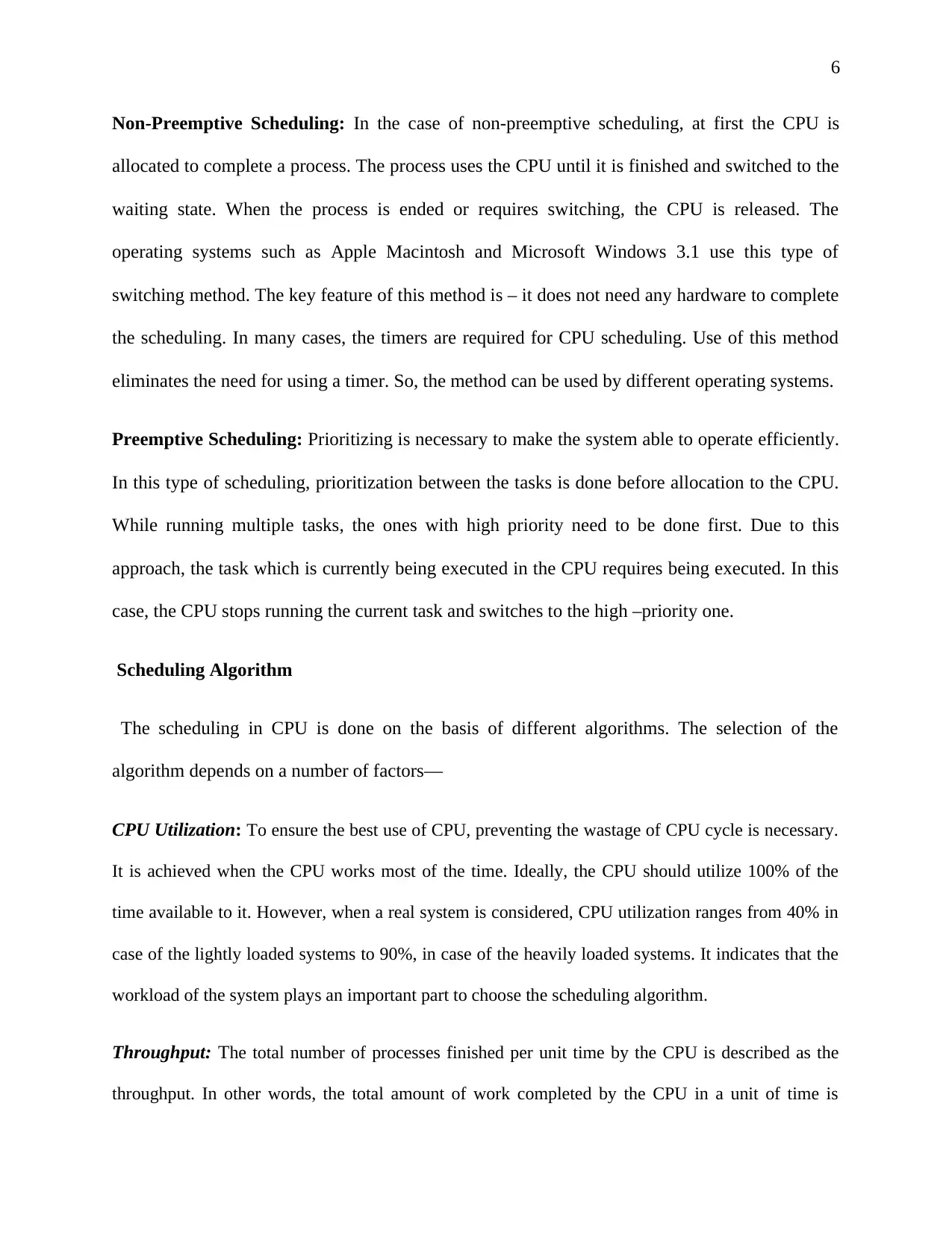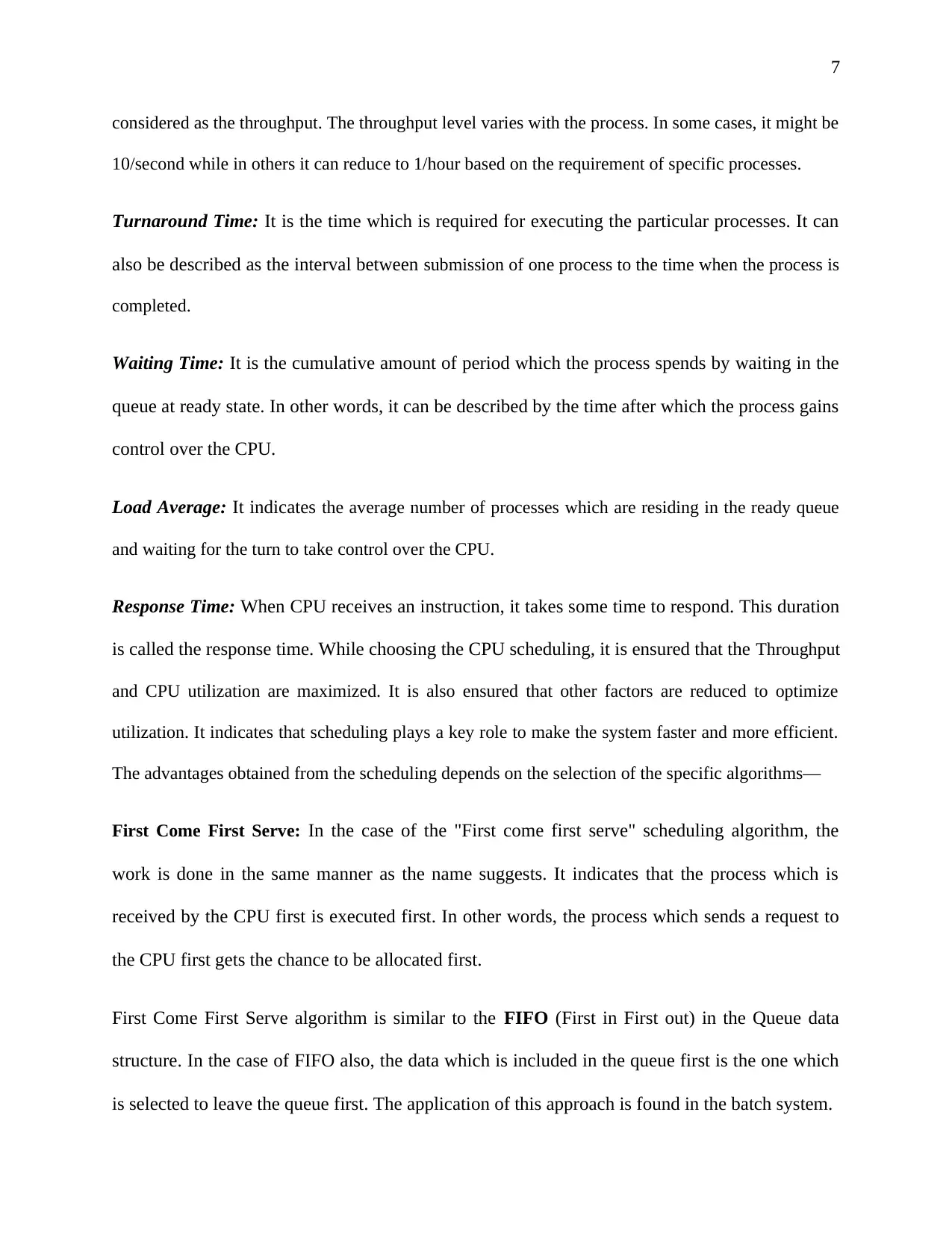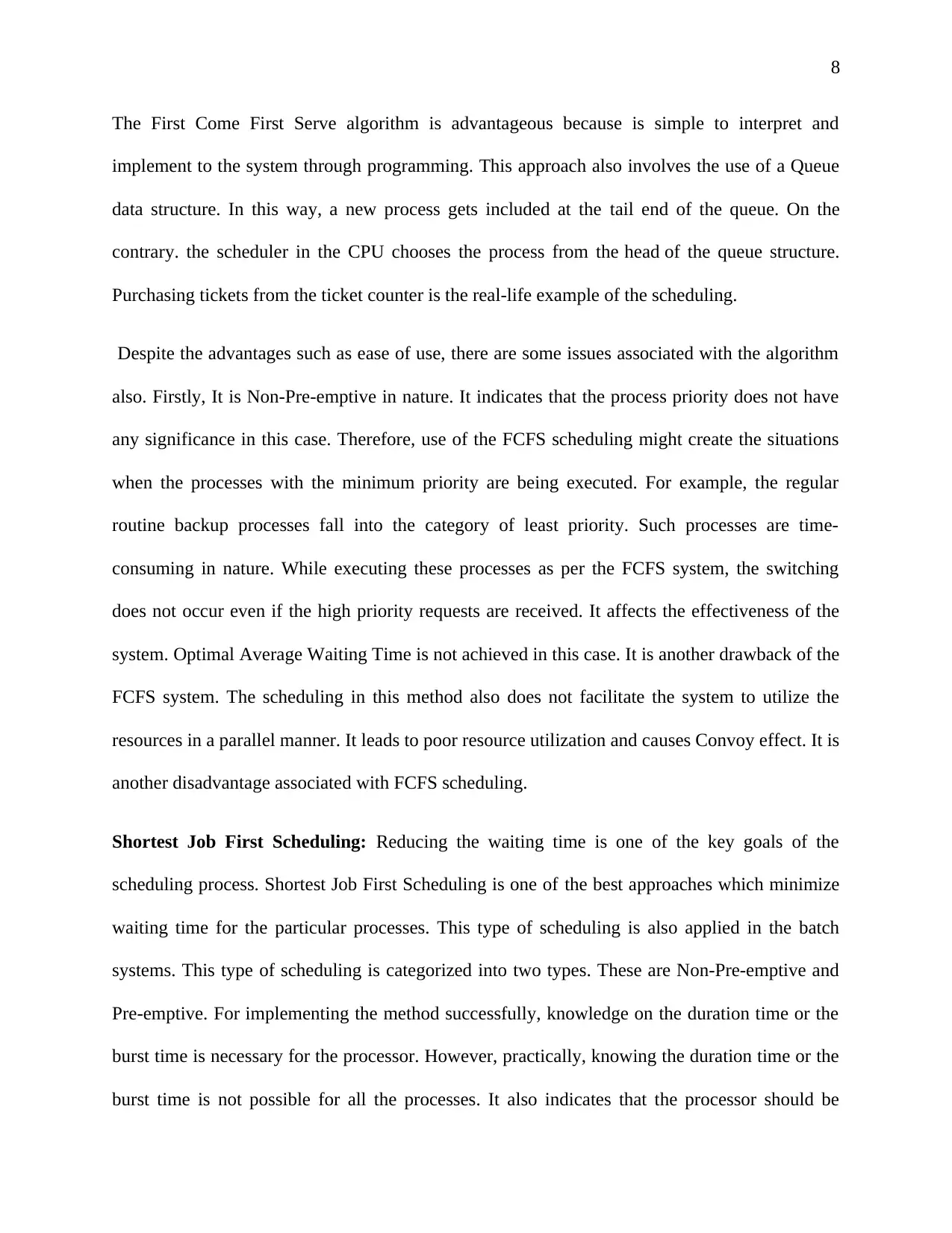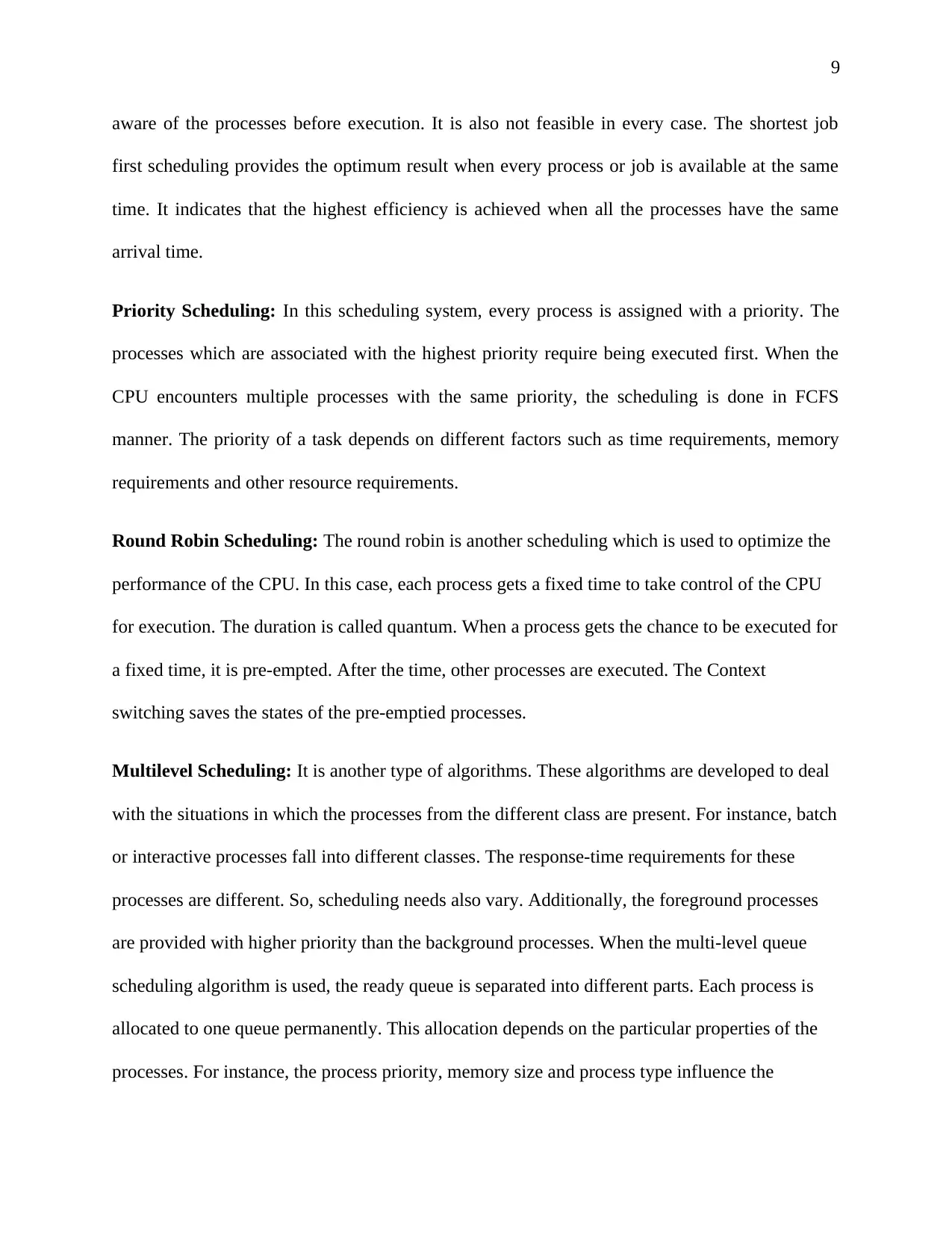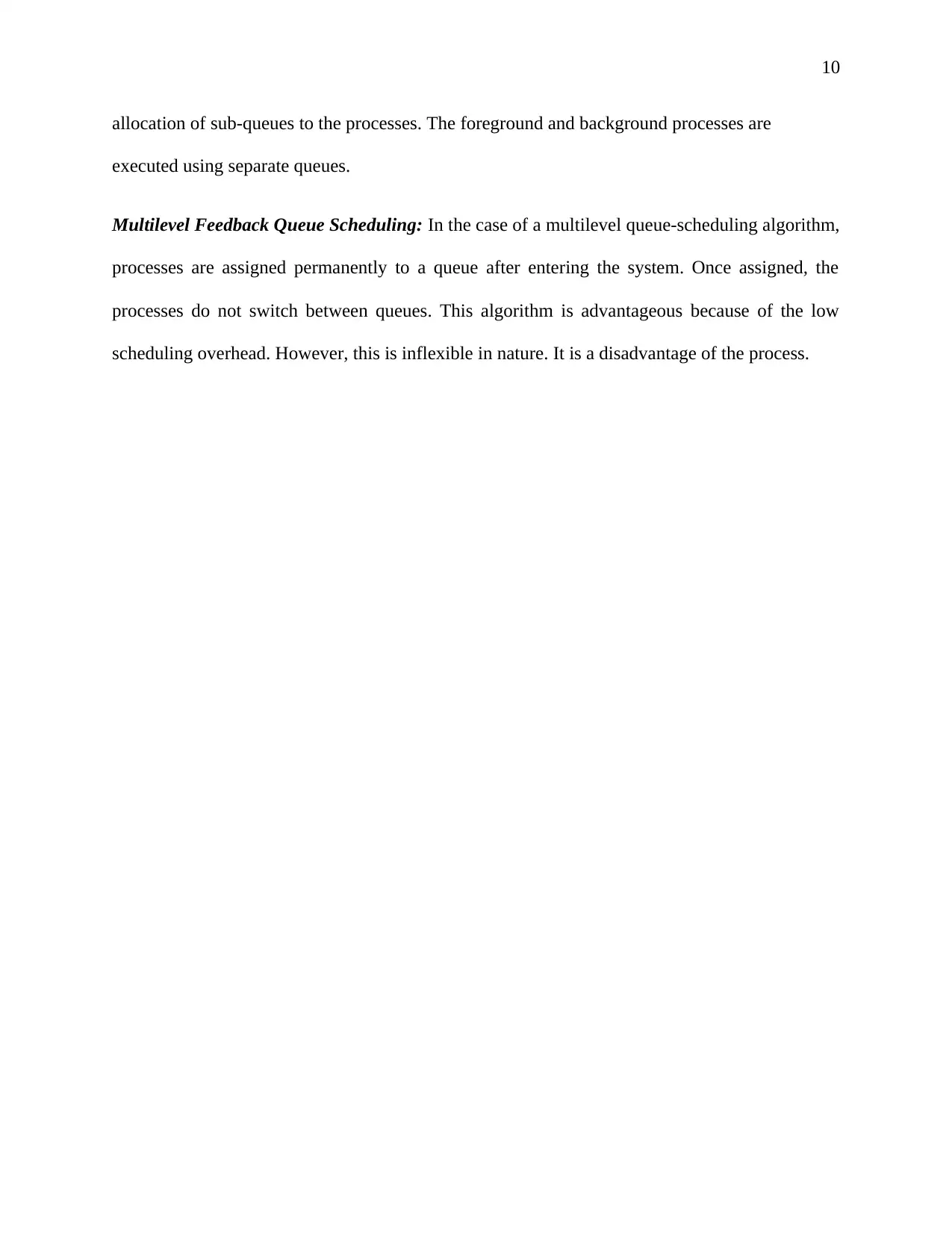The First Come First Serve (FCFS) scheduling algorithm assigns the CPU to the first process that requests it, resulting in the execution of processes in the order they are received. This approach is similar to FIFO queues and is used in batch systems. The FCFS algorithm has the advantage of being simple to implement, but it also has drawbacks such as non-pre-emptive nature, poor resource utilization, and convoy effect. The Shortest Job First Scheduling algorithm aims to minimize waiting time by executing the shortest job first, while Priority Scheduling prioritizes processes based on their requirements. Round Robin Scheduling allocates a fixed time quantum to each process, pre-empting it when its time is up. Multilevel Scheduling separates ready queues into different parts based on process properties, allocating sub-queues permanently. Multilevel Feedback Queue Scheduling assigns processes to a queue after entering the system, but this approach has low scheduling overhead and flexibility.
![[object Object]](/_next/static/media/star-bottom.7253800d.svg)
![[object Object]](/_next/static/media/star-bottom.7253800d.svg)

